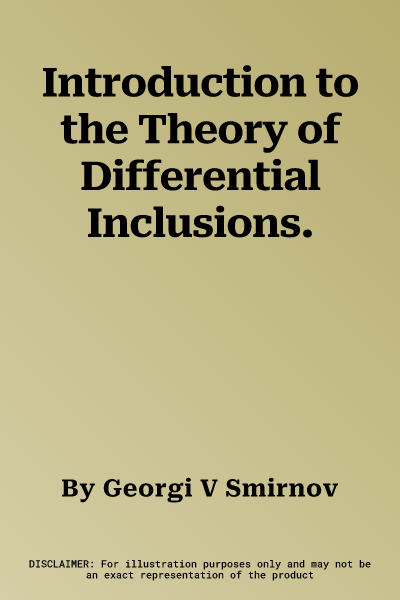Georgi V Smirnov
(Author)Introduction to the Theory of Differential Inclusions.Hardcover, 1 January 2002

Temporarily out of stock
Free Delivery
Cash on Delivery
15 Days
Free Returns
Secure Checkout

Part of Series
Crm Proceedings & Lecture Notes,
Part of Series
Graduate Studies in Mathematics,
Print Length
226 pages
Language
English
Publisher
American Mathematical Society
Date Published
1 Jan 2002
ISBN-10
0821829777
ISBN-13
9780821829776
Description
Product Details
Author:
Book Format:
Hardcover
Date Published:
1 January 2002
ISBN-10:
0821829777
ISBN-13:
9780821829776
Language:
English
Pages:
226
Publisher: